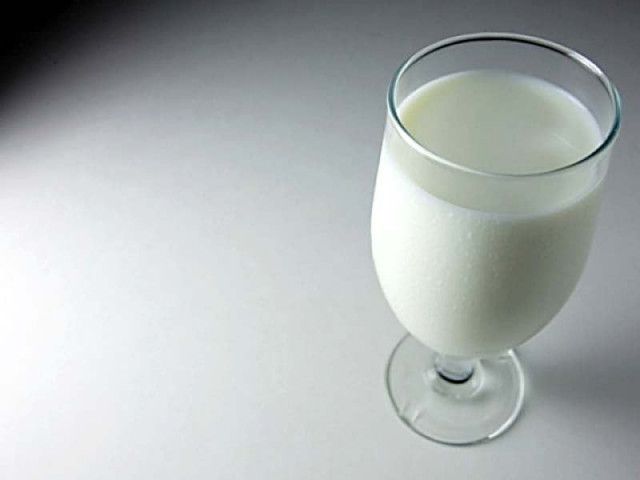Govt plans to slap 10% tax on branded milk
May also increase sales tax to 17% on other dairy products proposals made to generate over Rs11b in revenue in 2016-17

The proposal also threatens the over $500 million planned foreign investment by FrieslandCampina - one of the leading global companies - in Engro Foods. PHOTO: FILE
The budget proposals, if carried all the way through, would force consumers to pay an extra Rs250 billion to milk producers, both of packaged milk and loose milk sold by milkmen. It could also threaten over $500 million planned foreign investment by FrieslandCampina - one of the leading global companies - in Engro Foods Limited.
FBR looking to milk more taxes
The company is planning to acquire a majority stake in Engro Foods, say industry sources. The Federal Board of Revenue (FBR) has been pushing these proposals to generate over Rs11 billion in additional revenues in the next financial year 2016-17, beginning July, said the sources.
It has proposed that milk and fat-filled milk sold in retail packaging, under a brand name, should be taxed at the rate of 10% against the current zero tax. The tax authorities have estimated receiving Rs10 billion from this single move. The FBR has proposed that milk should be taken out of the zero-rating regime.
According to the second proposal, the tax authorities have sought an increase in sales tax on flavoured milk, yogurt, cheese, butter, cream, desi ghee, whey and cream from 10% to the standard 17%. The estimated size of the additional revenue is Rs1 billion, according to the FBR working.
This would be the second change in the tax structure of the dairy industry in the last one year. In the last budget, the federal government had imposed 10% sales tax on yogurt, cheese, butter, cream, desi ghee, whey and cream. Finance Minister Ishaq Dar had claimed that the rich class consumed these items.
However, the abrupt and frequent changes in the tax structure are now threatening the already vanishing foreign investment in the country.
According to industry sources, Engro - one of the largest conglomerates - is in discussion with FrieslandCampina for a potential strategic partnership. The Dutch company wants to acquire a 51% stake in Engro Foods and the transaction is estimated at around $500 million.
Pakistan is the fourth largest milk producer in the world, with production estimated at more than 40 billion litres per year. Despite the abundance of this valuable resource, only 6% of the tradable milk is processed to be consumed in a hygienic format.
The government has classified dairy items in Fifth Schedule of the Sales Tax Act, whereby these items are charged zero sales tax. This has enabled producers to keep the difference between loose and packaged milk price to low levels, making nutritious and unadulterated milk affordable to consumers.
According to Engro Foods, any change in tax structure of the dairy industry would result in the discontinuation of tax refunds and will inflate milk price by Rs8 per litre.
Furthermore, it adds, the price increase will result in consumers being out of pocket by Rs250 billion, as loose milk suppliers would increase price and they operate mostly outside of the tax net.
The dairy category carries a 7% weight in the CPI basket and any price increase will contribute to an increase in inflation. As Ramazan is expected to coincide with summer months, when demand is at its highest, one can expect further inflationary pressure in the holy month.
People close to Engro Foods said while discussions with Friesland were on-going, any adverse taxation would increase the tax or regulatory burden on the packaged milk industry which could put this key investment to risk.
The FBR is proposing changes to the tax structure for concealing its inefficiency, as under the zero-rating regime it has to pay tax refunds to the industry. The FBR owes over Rs20 billion in refunds to dairy producers that it is showing as its revenues, according to the Pakistan Dairy Association.
Published in The Express Tribune, May 17th, 2016.
Like Business on Facebook, follow @TribuneBiz on Twitter to stay informed and join in the conversation.



















COMMENTS
Comments are moderated and generally will be posted if they are on-topic and not abusive.
For more information, please see our Comments FAQ